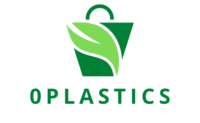From Waste to Wilderness: Repurposing Plastics for a Greener Future
Plastic. It’s ubiquitous, convenient, and sadly, often disposable. Mountains of this material choke landfills and oceans, threatening wildlife and ecosystems. But what if these discarded plastics could be reborn, not as blight, but as a boon for our planet? That’s the promise of innovative solutions for reusing and repurposing disposable plastics, transforming “waste” into “wilderness.”
Reimagine, Redesign, Refashion: Imagine single-use water bottles morphing into sturdy bricks for eco-friendly construction. Dutch startup ByFusion is doing just that, blending shredded plastic with sand and additives to create durable building blocks with insulating and fire-resistant properties. This not only diverts plastic from landfills but also offers affordable, sustainable construction materials for disaster-stricken areas or developing nations.
Nature’s Recycling Power: Bioplastics, made from renewable resources like corn starch or seaweed, offer a promising alternative to traditional plastics. Companies like Ecovative Design are utilizing mycelium, the root system of mushrooms, to grow packaging materials and furniture. These naturally decompose, returning nutrients to the soil and leaving no harmful microplastics behind.
From Trash to Treasure: Upcycling, the art of transforming old objects into new, extends the life cycle of existing plastics. Kenyan artist Eric Agyeman creates stunning animal sculptures from discarded flip-flops, raising awareness about plastic pollution while repurposing waste into vibrant art. In India, women’s cooperatives weave colorful tote bags from used plastic bags, providing livelihood opportunities and reducing plastic’s presence in landfills.
Technology Takes the Lead: Chemical recycling breaks down plastic waste into its molecular building blocks, allowing for the creation of new, high-quality plastics. This closed-loop system minimizes reliance on virgin materials and significantly reduces plastic’s environmental footprint. Companies like Plastic Energy are pioneering this technology, turning mixed plastic waste into valuable fuel and chemical feedstocks.
Citizen Power Drives Change: Policy interventions like plastic bag bans and extended producer responsibility, where manufacturers are held accountable for waste management, incentivize responsible production and consumption. Individual choices, like using reusable bags and bottles, and actively participating in recycling programs, collectively make a significant impact.
The journey from “waste to wilderness” requires collective effort. Governments, businesses, and individuals must embrace innovation, support responsible production and consumption, and invest in recycling infrastructure. By harnessing the power of design, technology, and community action, we can transform the scourge of plastic waste into a springboard for a greener future. Let’s reclaim our wilderness, not from plastic’s clutches, but through its ingenious repurposing.
